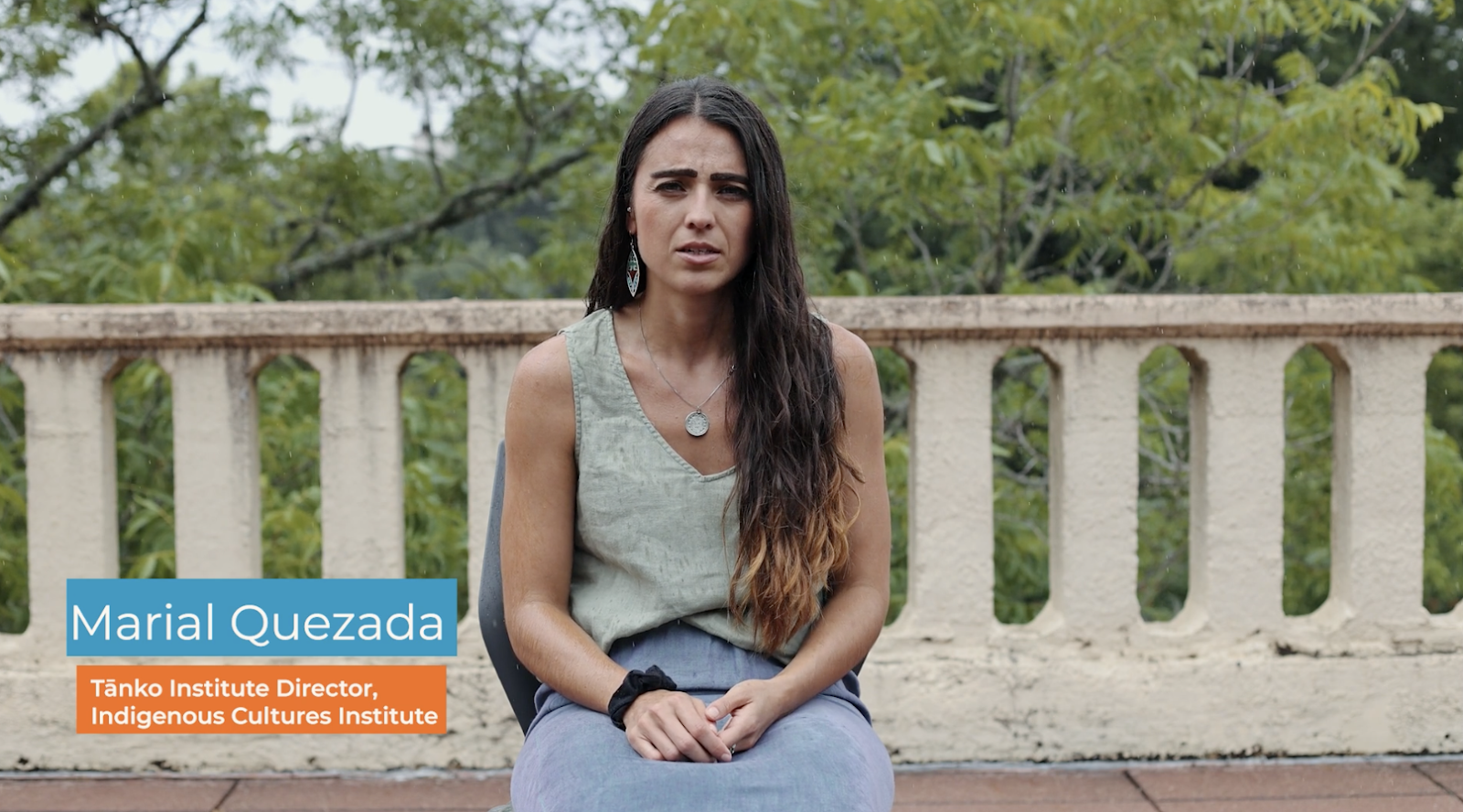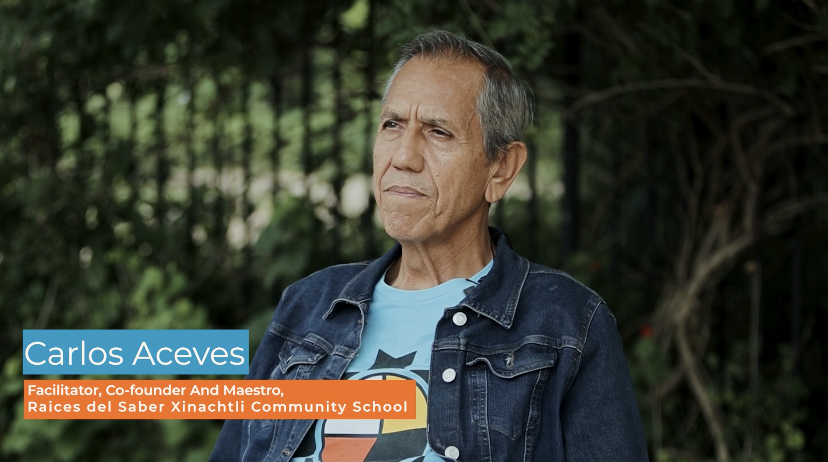Xinachtli means "seed" in Nahuatl and as described in this wonderful video as a way of thinking "outside the box" of tradition, mainstream schooling in the U.S. Maestro Carlos Aceves shares, an Indigenous elementary school teacher his view that children do get a lot of information in schools, but they're objectified through processes and their corollary logics like high-stakes testing, tracking, drill and kill curriculum and the like, that reduce their sense of who they are and accordingly, their possibilities.

I recently corresponded with Maestro Aceves when I received one of his emails that expressed:
Restore the ceremonies, renew the covenants, return to the sacred places, and follow the story in the Sky.”
As Natural Peoples we look to Creation for guidance. We were given ceremonies as textbooks, we made agreements with Natural Powers so that we can continue surviving as a people, we travel to special places of Creation on Earth to make offerings in appreciation of Life, and we learn the cycles above as patterns for our Natural Way of Life.
"Ceremonies as textbooks." These words touch me deeply. There is such beauty in his words that encourages us to think of the natural world differently.
For Texans, this should be an urgent matter as according to a recent Instagram post by Progress Texas, our state is running out of water. Newsweek also has a recent story on this last week on September 11. It's shocking to learn from Agriculture Commissioner Sid Miller, "We lose about a farm a week in Texas, but it's 700 years before we run out of land, the limiting factor is water." Okay... That's not a small "but" to me. In any case, you get the point.
What should also concern us is that recent statistics show that people from around the country are flocking to Texas because it's an affordable state. Long term, this places stress on our state's water supply that is additionally jeopardized by fracking.

This is what we are collectively about, Academia Cuauhtli, the ICI, the Tanko
Institute, and so many, if not all of us, in the Ethnic Studies Movement. Education is always about changing consciousness. Unfortunately, mainstream schooling with its colonial logics is often about reducing children to a number on a piece of paper—and not just the children, but their teachers and schools. This testing regime has been so terribly harmful. What is there not to love about spending time in nature and taking time to learn, not just from teachers, but from the natural world itself?
For a paper I'm writing that is focused on our work at Academia Cuauhtli where I cite Maestro Aceves, I asked him how he identifies and this is what he shared,
Carlos Aceves Yolohuitzcalotl
Cihuacoatl for Kalpulli Tlalteca People of the Earth Community.
bilingual elementary school teacher
I have seen Maestro Aceves in action. He is the consummate Indigenous bilingual elementary school teacher. I would love to be in his elementary school classroom every single day, were it possible.
Thank you, Maestro Aceves and thank you ICI for our partnership that from our own Xinachtli moment has grown and blossomed exquisitely over the years.
-Angela Valenzuela

No comments:
Post a Comment